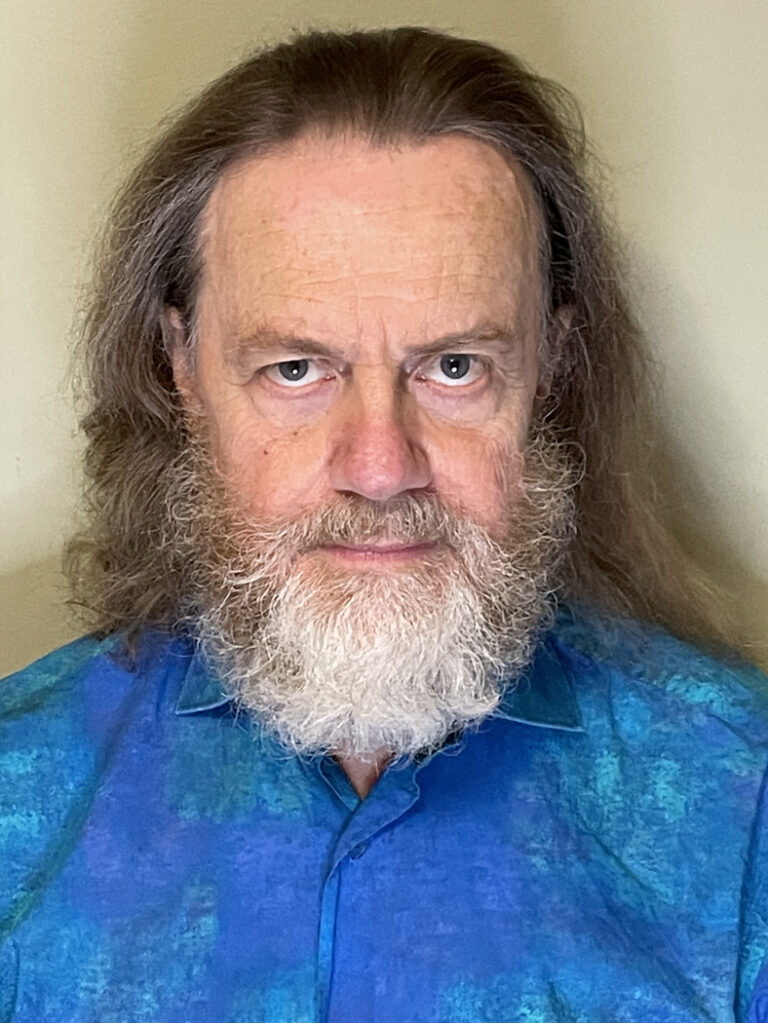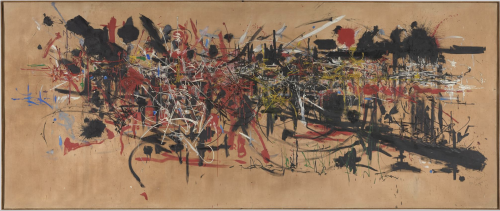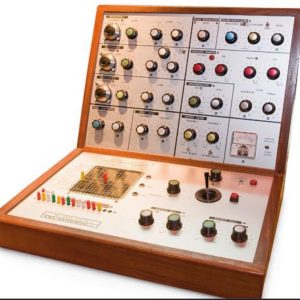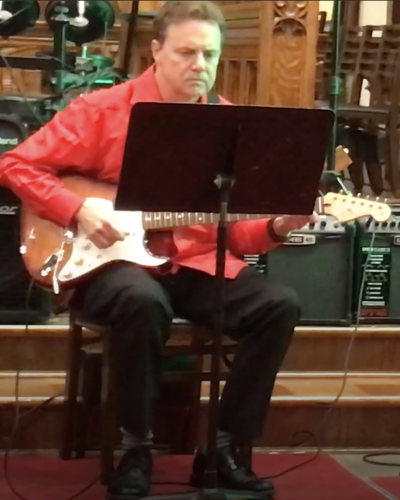Born in 1959, composer, producer, sound recordist, and multi-instrumentalist Grant Mackay discovered a fascination with sound early in life at the age of nine.
In the late 1960s, his childhood experiences with tape recording technology started when his family would send tape-recorded letters across the country to his grandparents.
His sound explorations deepened in the early 1970s while experimenting with his father’s two Telefunken reel-to-reel tape recorders — capturing found sounds (musique concrete); recording sound poetry; creating tape loops; layering sounds, and composing rudimentary musical works.


In 1975, at age sixteen, Mackay composed his first “sound” composition, The Battle of the Bouvine (inspired by the abstract painting of the same name by Georges Mathieu).
The following year 1976, he wrote his first formal composition for piano, simply entitled Piano Solo.
For the next three years, 1977-80, Mackay embarked on an ambitious course of study at the Royal Conservatory of Music (RCM), Toronto. Beginning with private piano lessons and the study of the rudiments of music, then culminating in two years of electronic music in RCM’s sub-basement electronic music labs under the tutelage of Wes Wraggert. There he explored vintage analogue synthesizers like the “Putney” (aka EMS VCS3), tape loop machines, musique concrete, multi-track recording techniques and composing several musique concrete sound and electronic compositions. It was also in this period that he began formal lessons on clarinet and bass clarinet with Robert W. Stevenson.

This period in the late 1970s was a fertile time for composing for Mackay — writing several works for both solo and small ensemble acoustic instruments in both neo-classical and modern styles.
In the summer of 1980, Mackay enrolled in a six-week intensive summer course in the Jazz Program under David Mott at York University, Toronto and was featured on bass clarinet.
Then in September of that same year, he was formally accepted into the Bachelor of Fine Arts Degree Program at York University, majoring in music composition. Mackay embarked on a four-year 1980-84 undergraduate degree program in music composition and performance at York. During this intense and productive period at university, Mackay was able to deeply enrich his musical skills and knowledge and expand his compositional vocabulary. York University, with its open-ended, multi-disciplinary curriculum afforded Mackay the kind of creative freedom he had been seeking. At York, he flourished and came into his own musical identity.

In performance at University, he played bass clarinet in the York University Orchestra under the esteemed professor, conductor, and music department head, James McKay. Again, Mackay was highlighted on bass clarinet during a performance of Edgard Varese’s, Deserts for small orchestra and magnetic tape.
Additionally, in performance at York, Mackay began a three-year study of the South Indian drum, the Mrdangam, with world-renown Mrdangam master and York University professor Trichy Sankaran. Mackay learned from Sankaran the intricacies of South Indian drumming as well as the theory and compositional forms of Indian Music.
Mackay’s creative trajectory in composition at York also went deeper into electronic music under Phillip Warren and in modern acoustic instrumental writing under the late, James Tenney. Some of his largest works created to date were written at York University. These included two compositions, Midsummer’s Rite, Three Pieces in the Form of a Pear, written in collaboration with choreographer/dancer Danovia Stechishin and Thou Art That (That Team Asi) which was written in his final year at York University. This last work was the culmination of everything he studied combining modern acoustic composition with world and electronic music.
Following his graduation from York in 1984, Mackay consciously took a two-year hiatus from writing music.
A fortuitous loan of a Roland JX-8P synthesizer from a fellow work employee lead to the creation of Mackay’s first album, The Returning – ambient and soothing music written for yoga and meditation. Composed in the summer of 1986, this album was a turning point in Mackay’s composing career. What followed was a thirty-five-year 1986-2021 recording career under the artist alias of Stephen Bacchus — the details of which can be found on his artist alias website, www.stephenbacchus.com.
Fast forward to 2005 and the release of Grant Mackay’s first album of nature sounds, Lakeside Savannah. Between 2005 and 2015, Mackay embarked on a decade-long series of expeditions into the furthest wilderness reaches in the provinces of Ontario and Quebec. These adventures to record Canadian wilderness resulted in a unique and significant body of six albums worth of nature and environmental sounds.
Grant Mackay’s comeback as a performer came in 2017 when he gave his first public performance in Cobourg, Ontario in over 30 years! In December of that year, he performed The Beatles’, Let It Be on electric guitar with Lorne Hemmerling — his guitar teacher, with whom Mackay studied intensively from 2017 to 2019.
In the 2021-22 season, Mackay joined New Ventures Band, Cobourg and played baritone saxophone in the New Ventures Jazz Big Band and bass clarinet in the New Ventures Concert Band and the Windsong Clarinet Ensemble.

His new website, www.grantmackaymusic.com, will feature concert dates, in-depth background info on the artist and his music, as well his discography of new recordings and reissues of unreleased recordings from his archives.
Always a musical adventurer, Mackay has explored Classical, Jazz, Rock, World, and Electronic Music. Besides the piano and synthesizer, he has played clarinet, bass clarinet, tenor saxophone, electric guitar and Mridangam (South Indian drum). He also has experience conducting small chamber ensembles. His many releases feature his synthesizer work, sounds of nature and both orchestral and world music instruments.